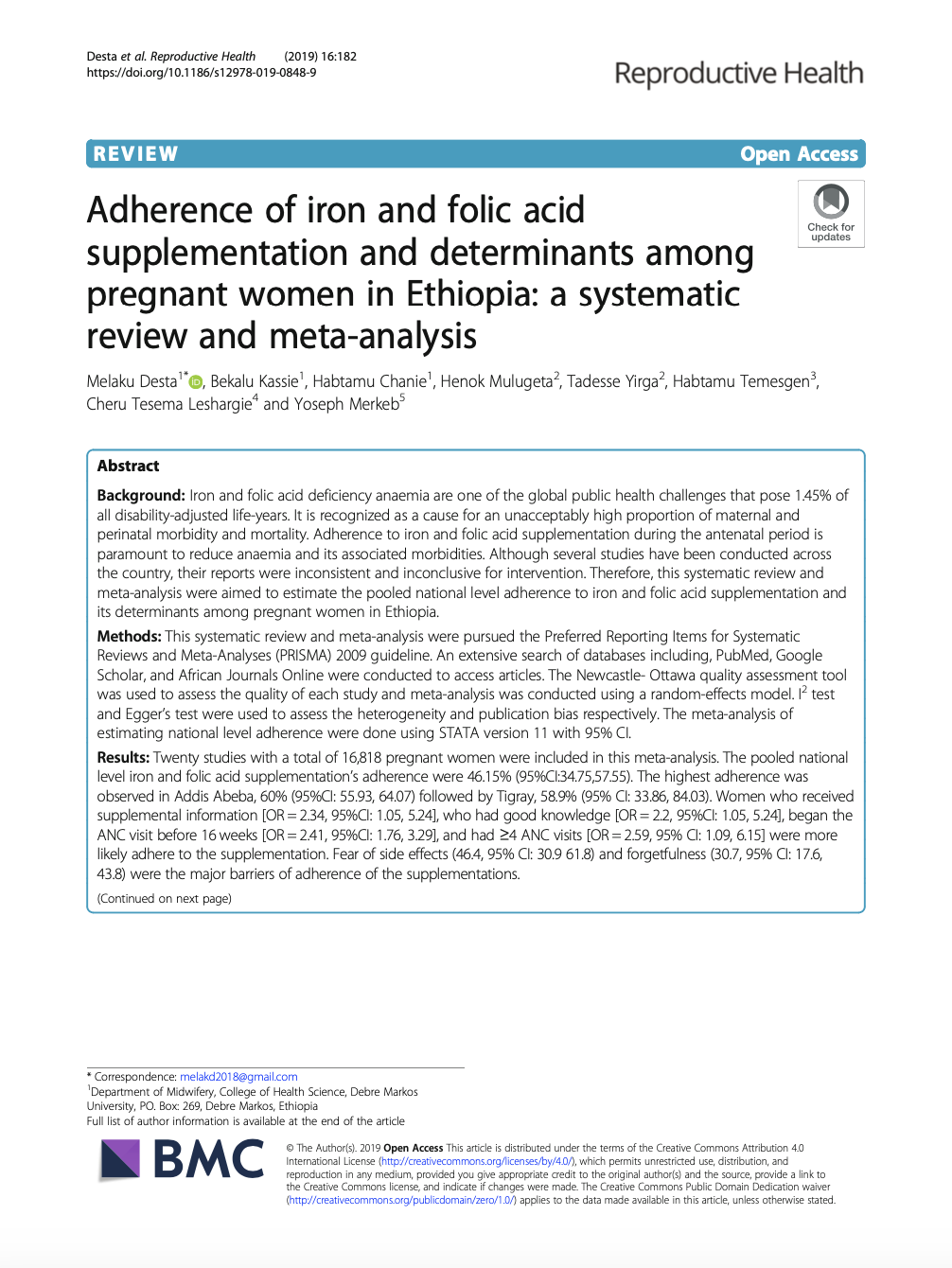Adherence of Iron and Folic Acid Supplementation and Determinants Among Pregnant Women in Ethiopia: a Systematic Review and Meta-Analysis
Publication Year: December 2019
Authors: Melaku Desta, Bekalu Kassie, Habtamu Chanie, Henok Mulugeta, Tadesse Yirga, Habtamu Temesgen, Cheru Tesema Leshargie, Yoseph Merkeb
Contributing Organization: Reproductive Health
Background: Iron and folic acid deficiency anemia are a global public health challenge, particularly in maternal and perinatal morbidity and mortality. This systematic review and meta-analysis aimed to estimate the pooled national level adherence to iron and folic acid supplementation and its determinants among pregnant women in Ethiopia.
Methods: Using the Preferred Reporting Items for Systematic Reviews and Meta-Analyses (PRISMA) 2009 guideline, an extensive search of databases was conducted to access articles. The Newcastle- Ottawa quality assessment tool was used to assess the quality of each study and meta-analysis was conducted using a random-effects model, taking into account the heterogeneity and publication bias. Twenty studies were analyzed.
Results: The results highlighted that the pooled national level of IFA supplementation adherence was 46.15%, with the highest adherences being observed in Addis Ababa and Tigray. Factors that caused higher adherence to supplementation included receiving supplemental information, having good knowledge, beginning antenatal care visits before 16 weeks, and having 4 or more antenatal care visits. Barriers of adherence included fear of side effects, and forgetfulness.
Conclusions: The meta-analysis found that more than half of pregnant women adhere to IFA supplementation. The study suggests that in order to enhance adherence among pregnant women in Ethiopia, it is crucial to strengthen supplemental counseling services, improve antenatal care services, and increase awareness about the benefits of supplementation. Addressing barriers such as managing side effects and overcoming forgetfulness through family support or male involvement during visits is essential for improving adherence rates, improving maternal health, and reducing the danger of anemia during pregnancy.

